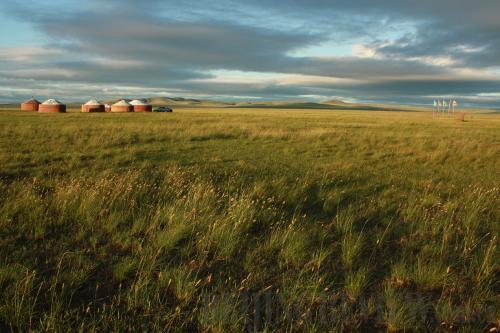|
 |
|
(LISA HAORAN WANG) |
Russian villages
The terrain changes from steppe to forest as one heads north from the grasslands. On the roadside, log cabins with ornamental fringes, and flowerpots on the windowsill begin to appear. This area is home to many ethnic Russians. Of the 15,600 ethnic Russians living in China, about a third of them live here, in Hulun Buir. They are communities of farmers, many of whom have lived in the area for two or three generations.
In the Russian village of Enhe, a 75-year-old Russian woman named Liza welcomes guests to her family guesthouse. Liza explains that five years ago, they were the first family to create a guesthouse in Enhe. They provide guests with home cooked Russian meals. For dinner, there are savory meat pancakes, fried potatoes, pickles, and borscht. For breakfast, bread with fresh cream and blueberry preserves is served. The guestrooms do not have private bathrooms but come with access to the sauna, a small cabin with a wood-burning stove to heat the room and the bathwater.
Now things have changed. The village is on the route of many package tours, and almost all the residents are busy converting their homes into guesthouses. At a local restaurant, even the cook was absent because he was away building his own guesthouse. In the nearby village of Shiwei, the entire town has already been converted to guesthouses, creating a somewhat eerie atmosphere.
|